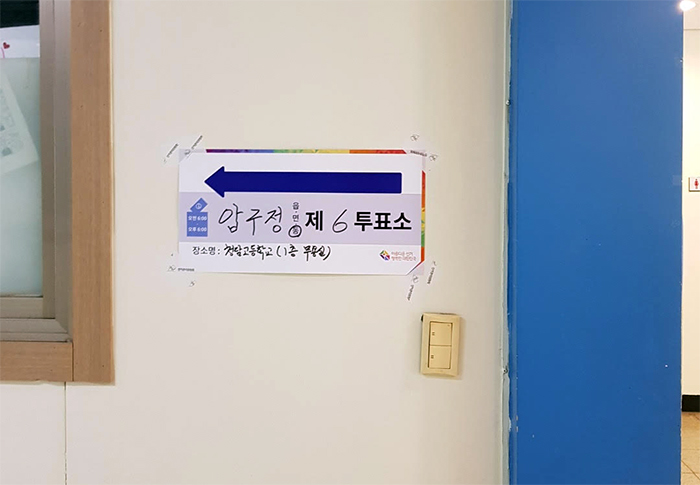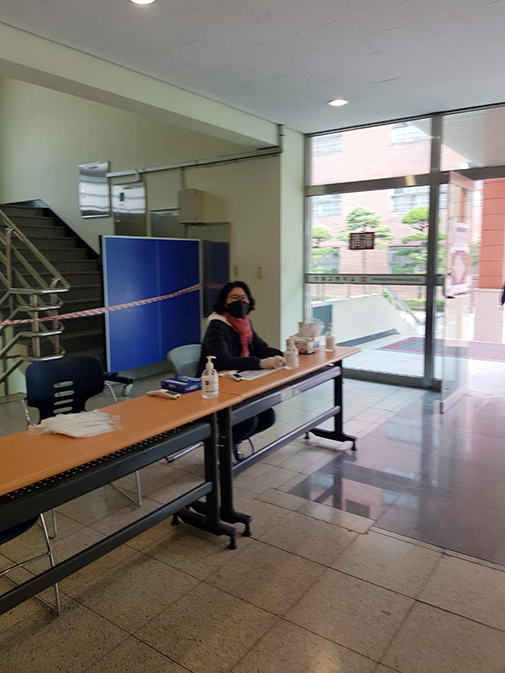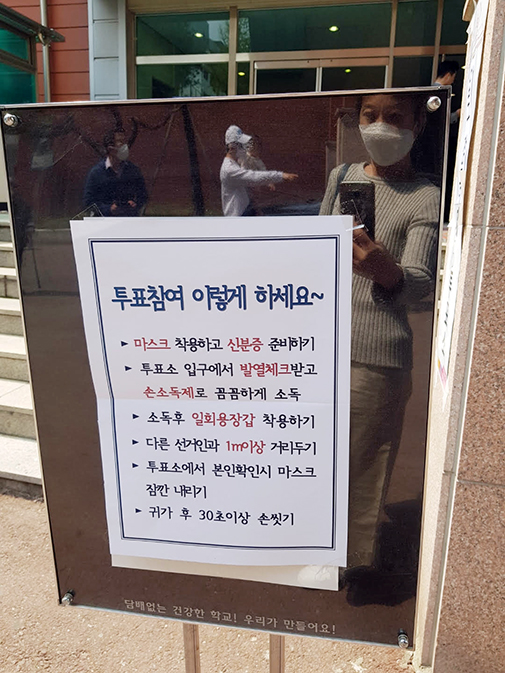In the United States, debate over how the upcoming November presidential elections will proceed amid the COVID-19 epidemic has taken over the Senate floor. But South Korea has already dealt with the difficulties of holding a large election while protecting citizen safety and health. Though the spread of the virus has recently slowed down in Korea, many feared that numbers would go up again, considering that innumerable citizens would gather to elect their legislative representatives in the April midterm elections. As a result, the Korean government took drastic measures to ensure that as many enfranchised citizens as possible would feel safe going to vote at their local polling stations.

As basic acts of health and safety, voters were provided with hand sanitizer at polling stations to cleanse their hands and were required to wear masks. All individuals were also expected to stand at least a meter apart from each other to prevent the spread of the virus among voters. However, arguably the most critical step that the government took was to take the temperatures of all voters; anybody who had at least a mild fever was sent to a separate voting booth that would be later disinfected. Even those who were self-quarantining after arriving from another country were allowed to go vote after certain time periods at specific poll stations, given that they did not use public transport to get there. Regardless of party affiliation, myriad people noted how the government adapted to alleviate public health concerns and protect enfranchisement for its citizens. Personally, I felt that the government did its best to ensure all eligible citizens were able to vote during the midterms. Especially considering that the Wisconsin Democratic primaries in the United States caused massive waves of infection among voters, I felt that the Korean government did a particularly exceptional job of keeping citizens safe while voting.
The 2020 midterm election was a watershed moment for Korean politics in more than one way – not only did the government have to enforce various policies to ensure that as many citizens could vote without endangering public health, but it was also the first year that 18-year-olds could vote in elections. Especially considering how a significantly larger range of citizens were now eligible to vote, both major parties wished to capitalize on the political relevance of the coronavirus outbreak to attract young voters. Although exploiting the widened scope of voters may have seemed essential for parties to gain as many seats as possible, I felt that the government should have delayed the election to preserve public health. In fact, the parties would have also benefitted from a postponed election as more citizens would have turned 18 by the new election date.

From a wider context, though, several concerns can be raised about this year’s elections. It is admittedly notable that the United Future Party and Democratic Party of Korea, two organizations that typically have wildly different political opinions, agreed to hold the elections. However, the reason both parties decided to work together to hold the midterms on April 15 was not because they truly cared for their citizens but because they wanted to further their respective political agendas before the momentum of the coronavirus disappeared. Considering how the Democratic Party had low prospects for reelection amid an unstable economy and several political scandals, many citizens thought that the ruling party simply wished to exploit their success at containing the virus before the epidemic lost its relevance. Similarly, many believed that the United Future Party did not want to delay the elections in order to criticize their rival for refusing to suspend travel from China at the beginning of the outbreak.

Many citizens remain unsure whether holding the elections during a global pandemic was the right decision, regardless of the strict measures the government took to guarantee that voters would not get sick afterwards. In a time when students have been banned from attending school since February and the Tokyo Olympics have been cancelled, is it truly worth even the smallest risk to go vote, when the elections could have been simply moved to a different date instead? Though it’s up to you whether you think holding the 2020 midterms during the COVID-19 epidemic was a good decision, one thing is for sure: this year’s elections were undeniably a once-in-a-lifetime moment in Korean history.

Rachel Lee
Grade 11
Seoul International School

